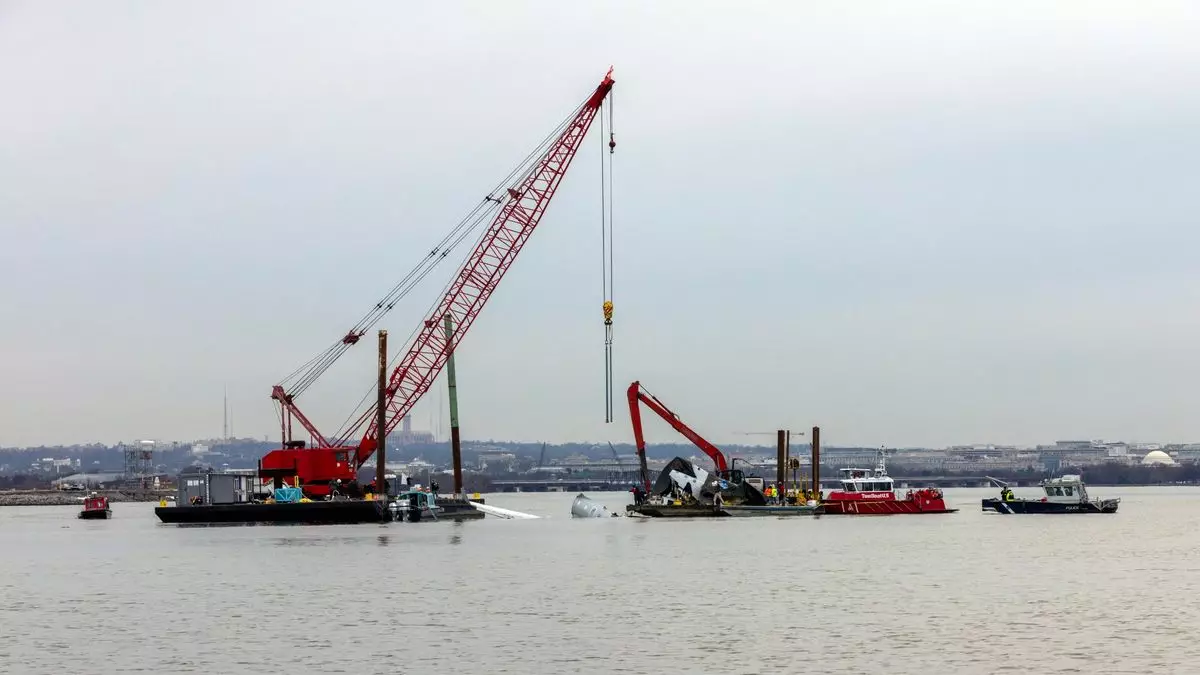The National Transportation Safety Board (NTSB) has long been recognized as a pivotal body in maintaining air safety standards. With a mission to improving transportation safety through independent investigations, the NTSB has earned the reputation of the “gold standard” in air accident investigations. This status, however, is threatened by political maneuvering. Recent events surrounding the January 29 collision of an American Airlines-branded regional jet with an Army Black Hawk helicopter exemplify the precarious nature of the NTSB’s operations when external political pressures emerge.
The collision, which tragically resulted in the loss of 67 lives, drew immediate attention. In the midst of the ongoing NTSB investigation, President Trump placed a spotlight on the situation by speculating about the potential causes before any conclusive evidence was available. Political analysts have pointed out that such interventions not only compromise the integrity of the investigation but also pose challenges for the agency as it seeks to operate independently.
Mark Jones, a political science professor at Rice University, elaborates on how President Trump’s early conjectures about the collision introduced unwarranted political pressure on the NTSB. By suggesting that diversity, equity, and inclusion initiatives had a hand in the crash, Trump created an atmosphere where NTSB investigators might feel compelled to address these points rather than focus solely on factual data. His remarks, although lacking evidence, paddle into the realm of politicization that could derail a strictly evidence-based investigation.
The implications extend further when analyzing how such political commentary affects the perception of the NTSB’s work. David Clark, a professor at Vanderbilt University, argues that this deviation from an apolitical standard poses substantial risks. If the NTSB’s final report contradicts President Trump’s speculative assertions, the agency could face backlash that might threaten its funding and operational capacity. The specter of congressional scrutiny looms large whenever an agency’s findings do not align with the administration’s narrative, highlighting the potential for politicized repercussions that could manipulate future inquiries.
The NTSB operates with a level of independence bolstered by its structure of five board members—appointed by the president and confirmed by the Senate—with overlapping terms across presidential administrations. This system is designed to insulate the board from political whims to some extent; however, the actions of individual presidents can still profoundly influence the agency’s functionality. The current political landscape, particularly under Trump’s presidency, gives rise to concerns about how motivations can shift an agency’s focus away from facts toward politically advantageous narratives.
Previous instances where Trump intervened in independent agencies suggest a troubling pattern. By dismissing members of the Equal Employment Opportunity Commission and the National Labor Relations Board, he demonstrated a willingness to challenge the independence of traditionally bipartisan organizations. This history raises concerns regarding the NTSB’s mission, especially when external political pressures can alter an agency’s priorities from technical and factual adherence to political appeasement.
In the face of these challenges, the NTSB’s leadership has consistently reaffirmed their commitment to conducting investigations without external influence. Board member J. Todd Inman assured the public that their dedication to uncovering the truth remains unwavering despite the surrounding noise. However, NTSB Chair Jennifer Homendy’s more subtle response to Trump’s interference highlights the pressure investigators face from political commentary.
The inherent risks of jumping to conclusions before a thorough investigation is completed cannot be overstated. Peter Goelz, a former managing director of the NTSB, characterized Trump’s remarks as significantly damaging to the integrity of an agency dedicated to establishing an unbiased safety protocol over decades of rigorous investigation. Such reactions from former agency officials underline the gravity of the situation and the potential long-term ramifications on public trust in the NTSB’s ability to function independently and effectively.
Ultimately, safeguarding the efficacy of the NTSB is essential in promoting air safety and reliability. The challenges posed by external political pressures must be navigated carefully to protect the integrity of investigations. As we reflect on the impact of political involvement in such crucial sectors, it becomes evident that a committed focus on unbiased inquiry is paramount. The tragedies resulting from aviation accidents necessitate a dedicated pursuit of truth—one that thrives best in an environment devoid of political distraction. Future governance structures should prioritize preserving the NTSB’s independence to ensure that air safety investigations remain within the realm of fact rather than speculation.


Leave a Reply